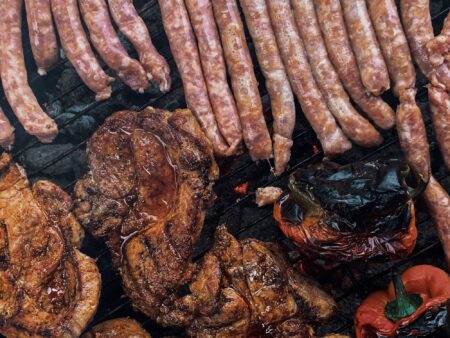More people in the world drink beer than any other manmade alcoholic beverage. The situation might change, though, unless carbon emissions are cut fast enough, according to a new paper in Nature Plants. A global team of authors suggests that barley yields may drop due to climate change, leading to an end to cheap beer.
While studies on the impacts of climate change on the provision of coffee and wine have been around for some time, it is the first time for beer to gain such attention. With the help of coupled long-term models, researchers found out that barley, an essential crop for beer production, is highly vulnerable to increased heat and prolonged droughts. The impact of different drought and heat levels on barley production has been modeled for 34 regions globally for the period between 2010 and 2099. Findings from climatic and agricultural models were further overlaid by economic ones to explore impacts on trade and pricing.
Out of four different scenarios not even one suggests that we can sustain beer production at current levels. An absence of action on the climate that would cause global average temperatures to rise by 5°C would cut barley yields by 17% globally. Yet losses could be as little as 3% if we manage to keep the global temperature rise below 3°C. Under some scenarios more barley would be likely to be used for purposes other than beer production, according Steven Davis, from the University of California Irvine, a co-author of the paper. “When we have these shortages, our models suggest people are going to feed the barley to the livestock before they make beer,” he said.
Even worse will be the unequal distribution of impacts across the globe. While some increase in barley yields is probable in North America, other regions like Central Africa, as well as Central and South America, would witness large drops in agricultural production. It is also possible that increased droughts will lead to less barely available for beer production due to increased demands for barley to be used as animal feed. Rich nations may find ways to adapt, but small-scale farmers in less economically developed countries will likely suffer.
Trade in barley may also stagnate, as with the rising prices and increasing scarcity its value would become more apparent to producers. Thus, import-dependent countries like Japan and Belgium are going to suffer first and most, with the latter potentially facing as much as a 38% drop in barley consumption by 2099. Beer prices are most likely to double globally, while the Czech Republic, famous for its myriad fine beers, is expected to face an unbelievable six-fold increase in prices, which would essentially make beer a luxury product. Meanwhile, the most optimistic scenario still foresees at least a 15% rise in global average prices, and this doesn’t include challenges associated with water scarcity.
Though industry leaders don’t sound too worried, with high hopes for plant breeding and gradual adaptation techniques, the belief in human ingenuity has yet to prove its resilience to climate challenge. Despite relaxed responses from the industry, researchers have done a great job of reaching beyond the usual suspects and speaking directly to millions of beer drinkers globally.
Did you like it? 4.6/5 (21)








